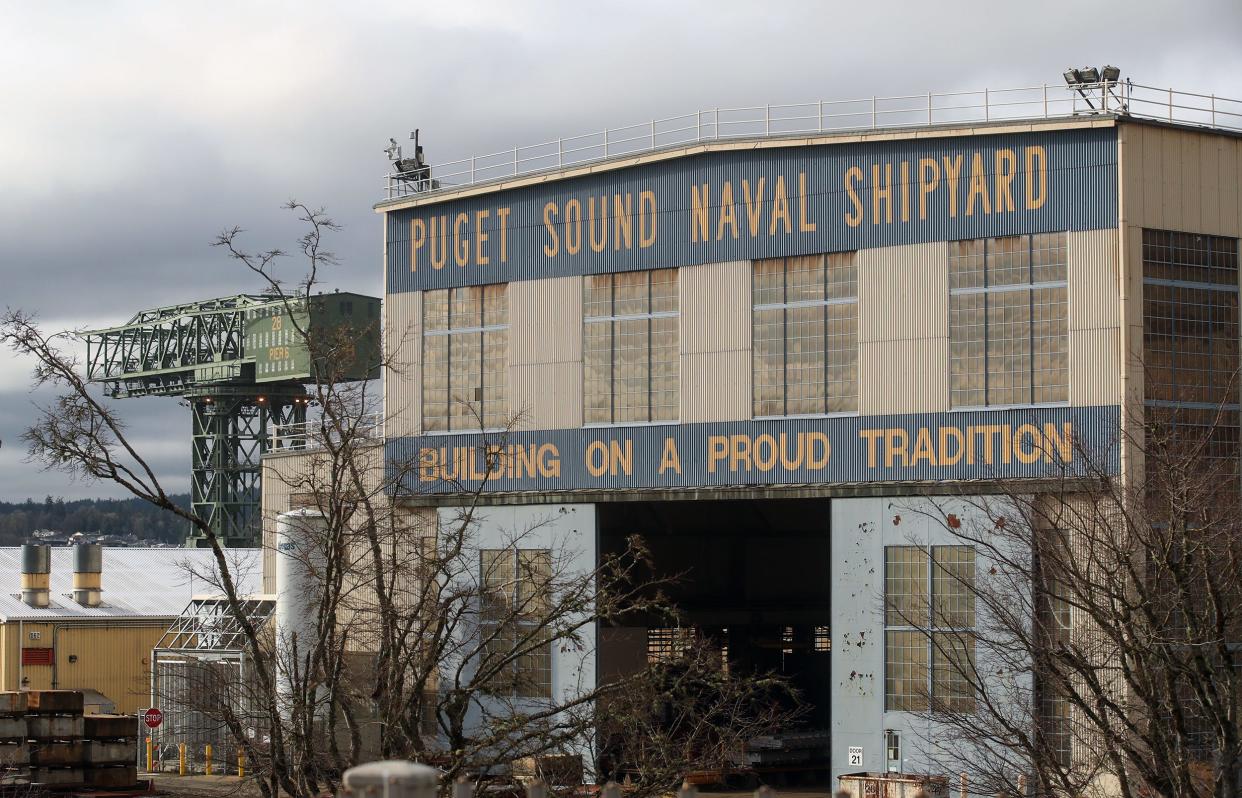Steps that will strengthen our shipyard

Every few months, I visit the Puget Sound Naval Shipyard (PSNS) and talk to our service members and civilians. It’s an opportunity to hear their concerns and learn about issues that impact their work.
In these conversations, I hear about a variety of topics. I hear concerns about the need to upgrade facilities and equipment so shipyard workers can meet the mission. I hear concerns about the need for better wages – particularly at a time when costs are going up. I even hear concerns about parking troubles.
The concerns of shipyard workers don’t get enough attention in our nation’s capital. With this in mind, I recently launched the bipartisan Congressional Public Shipyard Caucus with my colleague Rob Wittman from Virginia. Our group is focused on addressing the needs of our nation’s four public shipyards – and of the men and women who work for them. The Caucus also serves to raise awareness about the importance of our public shipyards within Congress.
Let’s talk about some of the issues I am hoping to push forward.

Upgrading shipyard infrastructure
Our public shipyards are at the core of our national defense strategy. Yet, all four public shipyards have substantial infrastructure needs. Just think of this: Puget Sound Naval Shipyard was established more than 130 years ago. Some of the structures and equipment are nearly that old. There are facilities that need seismic improvements. In addition, when the Ford-class carriers come on line next decade, there’s not a single shipyard on the West Coast with a drydock that will be large enough to service them. That’s a problem.
Beyond that, workers often report that they rely upon ageing technology and equipment. I hear about equipment that either doesn’t work anymore or is well beyond its expected service life. When machines or tools break, a worker’s job becomes that much more difficult requiring overtime, expensive repairs, and potential delays.
These issues are why the Navy has proposed the Shipyard Infrastructure Optimization Program (SIOP), a once-in-a-generation revitalization plan. This 20-year, $21 billion program will be focused on upgrading and modernizing our public shipyards. And it demands attention – and support – from Congress.
Already, the Public Shipyard Caucus has made progress, increasing near-term funding for the SIOP. As a member of the Defense Appropriations Subcommittee, I was also able to secure additional funding in the recently-introduced appropriations bill to increase funding for addressing seismic deficiencies.
Improving pay and benefits for shipyard employees
Our nation expects shipyard workers to repair and maintain some of the most complex machinery on earth — America’s aircraft carriers and submarines. These ships help protect our interests at home and abroad.
If we are going to be able to recruit and retain talented workers, workers need to be adequately compensated. That’s why I’ve sponsored legislation that would provide a pay raise to all shipyard workers to keep up with rising prices. I’m also pushing to ensure that entry-level wages are enhanced so our shipyards can compete for workers with other employers.
In addition, I’ve sponsored the Federal Retirement Fairness Act to ensure that federal employees who started their careers as temporary workers – meaning they did not have the ability to make retirement contributions – are granted the opportunity to make catch-up retirement contributions so that they can retire on time. I’ve heard workers express that without this option, they face an unfair choice: leave the federal service without full retirement benefits or work longer than expected to obtain full retirement benefits.
Strengthening defense community infrastructure
When I visit with shipyard workers, I hear consistent concerns about local off-base challenges – traffic at Gorst, access to child care, and – yes – parking. Importantly, the Defense Communities Infrastructure Program (DCIP) helps communities near defense installations - like those around PSNS - plan for and implement future infrastructure projects that improve the quality of life. I’ve been pushing to increase funding for this program in hopes that it could be used to address some of the issues impacting local shipyard workers. And the recently-released Defense Appropriations bill included a substantial increase that will hopefully help Kitsap County.
The shipyard and the folks who work there are vitally important to our national security. Congress should give them the attention and care they deserve. I’ll keep at it!
U.S. Rep. Derek Kilmer represents Washington's Sixth District, which includes Kitsap County.
This article originally appeared on Kitsap Sun: Opinion: What Congress can do to strengthen Puget Sound Naval Shipyard

